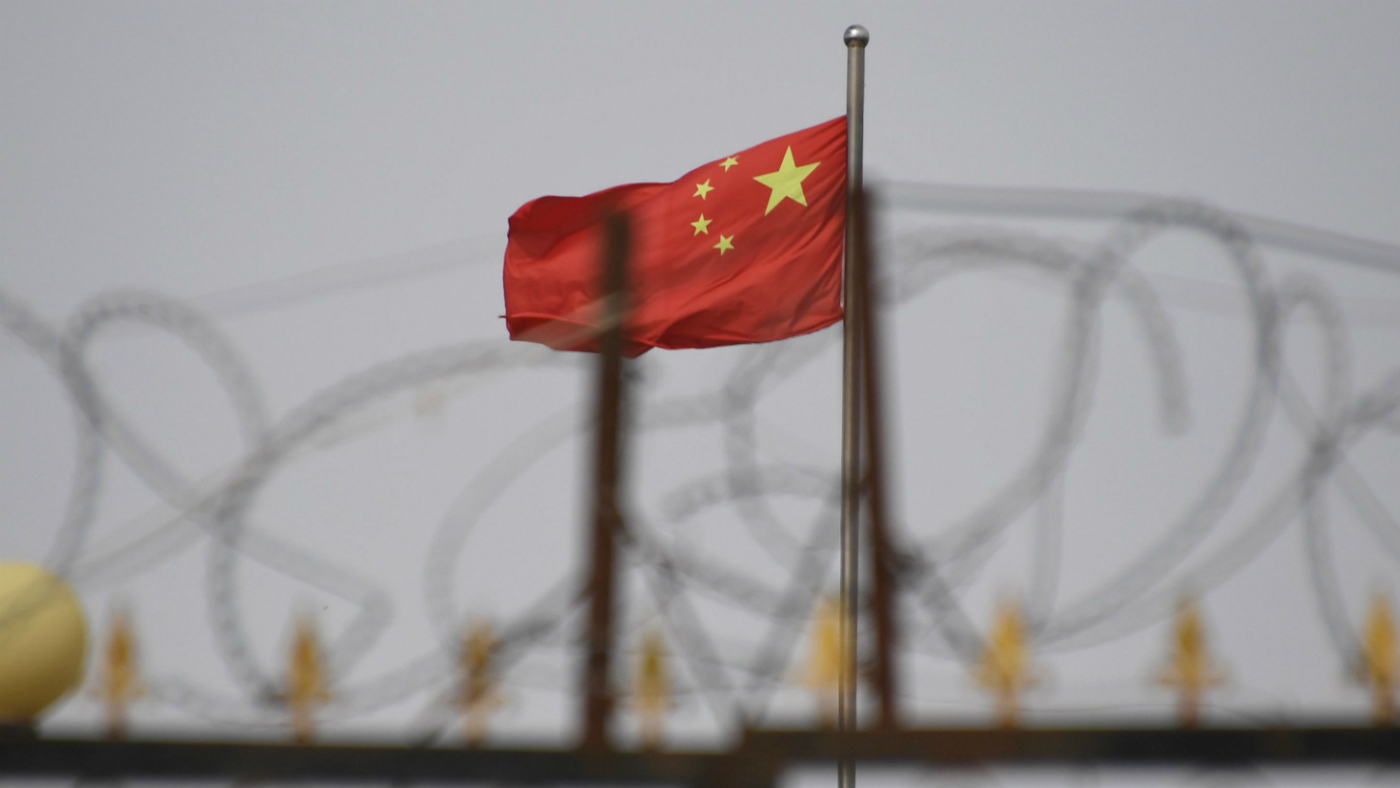What was in the leaked files on China’s detention of Uighur Muslims?
Officials told to show ‘absolutely no mercy’ in clampdown on ethnic minorities

A free daily email with the biggest news stories of the day – and the best features from TheWeek.com
You are now subscribed
Your newsletter sign-up was successful
Leaked documents allegedly shared among Chinese Communist Party officials have laid bare the details of Beijing’s brutal crackdown on ethnic and religious minorities within the country’s borders.
The 403-page internal government file was given to The New York Times by a “member of the Chinese political establishment”.
It cites President Xi Jinping’s request that security personnel show “absolutely no mercy” in their suppression of ethnic Uighurs and other Muslim groups.
The Week
Escape your echo chamber. Get the facts behind the news, plus analysis from multiple perspectives.

Sign up for The Week's Free Newsletters
From our morning news briefing to a weekly Good News Newsletter, get the best of The Week delivered directly to your inbox.
From our morning news briefing to a weekly Good News Newsletter, get the best of The Week delivered directly to your inbox.
The crackdown has seen more than one million civilians sent to detention camps - mainly in the Xinjiang region of China - where they are subjected to political indoctrination. China first denied the existence of such camps, before relenting and claiming that their sole purpose is to “re-educate” dissenting voices and root out terrorism.
What do the leaked papers say?
The documents were released by an anonymous Chinese official and reveal that President Xi first called for the crackdown in a series of private speeches given to officials during and after a visit to Xinjiang in 2014, The Guardian says.
This came shortly after Uighur militants attacked a train station, stabbing and killing 29 people and wounding more than 100 others.
A free daily email with the biggest news stories of the day – and the best features from TheWeek.com
Citing a speech made by Xi shortly after the visit, the Guardian reports that Xi said China must begin a “struggle against terrorism, infiltration and separatism”, adding: “We must be as harsh as them and show absolutely no mercy.”
–––––––––––––––––––––––––––––––For a round-up of the most important stories from around the world - and a concise, refreshing and balanced take on the week’s news agenda - try The Week magazine. Get your first six issues for £6–––––––––––––––––––––––––––––––
Xi did not explicitly order the creation of a large network of camps, the documents reveal, but said that his party should use the “organs of dictatorship” to deal with the threat of terrorism.
The papers also contain a series of directives to officials in the region, advising on how to pressure the local population into remaning silent about the disappearance of family members into camps. Officials are told to answer questions about when individuals can return home from the camps by saying: “Freedom is only possible when this ‘virus’ in their thinking is eradicated and they are in good health.”
The documents also reveal that secretary of Xinjiang Uyghur Autonomous Region Chen Quanguo gave orders in February 2017 for authorities to engage in a “smashing, obliterating offensive” and to “round up everyone who should be rounded up”, says The Telegraph.
What has the response been?
The information has sparked outrage among human rights campaigners and activists, with the Asia Times reporting that it is hoped Western powers will offer a sterner condemnation of the Chinese Communist Party’s behaviour after the leak.
Democratic US presidential candidate Elizabeth Warren tweeted that the report details “a horrifying human rights violation”, calling China’s crackdown “cruel” and “bigoted”. The World Uyghur Congress described the findings as “truly chilling” and another form of “genocide”, calling China a “country with concentration camps” in a tweet.
The New York Times reports that the leaked papers reveal that one of the most surprising reactions to the supression of the Uighur Muslims has come from within China, with the plans facing “unexpected resistance from officials who feared a backlash and economic damage”.
-
 How the FCC’s ‘equal time’ rule works
How the FCC’s ‘equal time’ rule worksIn the Spotlight The law is at the heart of the Colbert-CBS conflict
-
 What is the endgame in the DHS shutdown?
What is the endgame in the DHS shutdown?Today’s Big Question Democrats want to rein in ICE’s immigration crackdown
-
 ‘Poor time management isn’t just an inconvenience’
‘Poor time management isn’t just an inconvenience’Instant Opinion Opinion, comment and editorials of the day
-
 The fall of the generals: China’s military purge
The fall of the generals: China’s military purgeIn the Spotlight Xi Jinping’s extraordinary removal of senior general proves that no-one is safe from anti-corruption drive that has investigated millions
-
 Epstein files topple law CEO, roil UK government
Epstein files topple law CEO, roil UK governmentSpeed Read Peter Mandelson, Britain’s former ambassador to the US, is caught up in the scandal
-
 Iran and US prepare to meet after skirmishes
Iran and US prepare to meet after skirmishesSpeed Read The incident comes amid heightened tensions in the Middle East
-
 Israel retrieves final hostage’s body from Gaza
Israel retrieves final hostage’s body from GazaSpeed Read The 24-year-old police officer was killed during the initial Hamas attack
-
 China’s Xi targets top general in growing purge
China’s Xi targets top general in growing purgeSpeed Read Zhang Youxia is being investigated over ‘grave violations’ of the law
-
 Panama and Canada are negotiating over a crucial copper mine
Panama and Canada are negotiating over a crucial copper mineIn the Spotlight Panama is set to make a final decision on the mine this summer
-
 Why Greenland’s natural resources are nearly impossible to mine
Why Greenland’s natural resources are nearly impossible to mineThe Explainer The country’s natural landscape makes the task extremely difficult
-
 Iran cuts internet as protests escalate
Iran cuts internet as protests escalateSpeed Reada Government buildings across the country have been set on fire